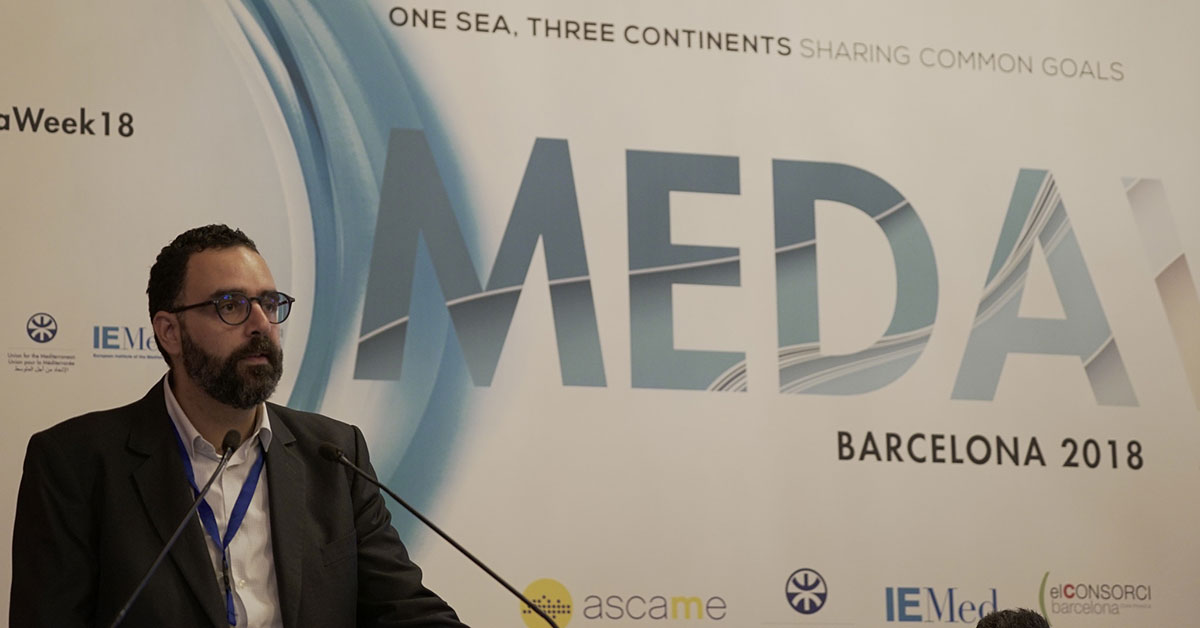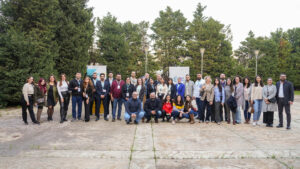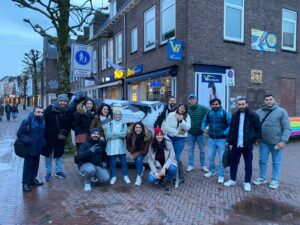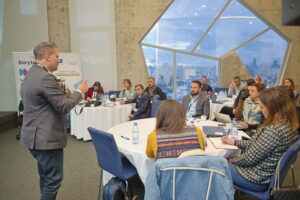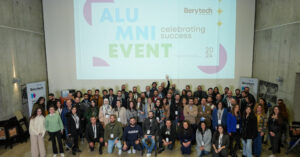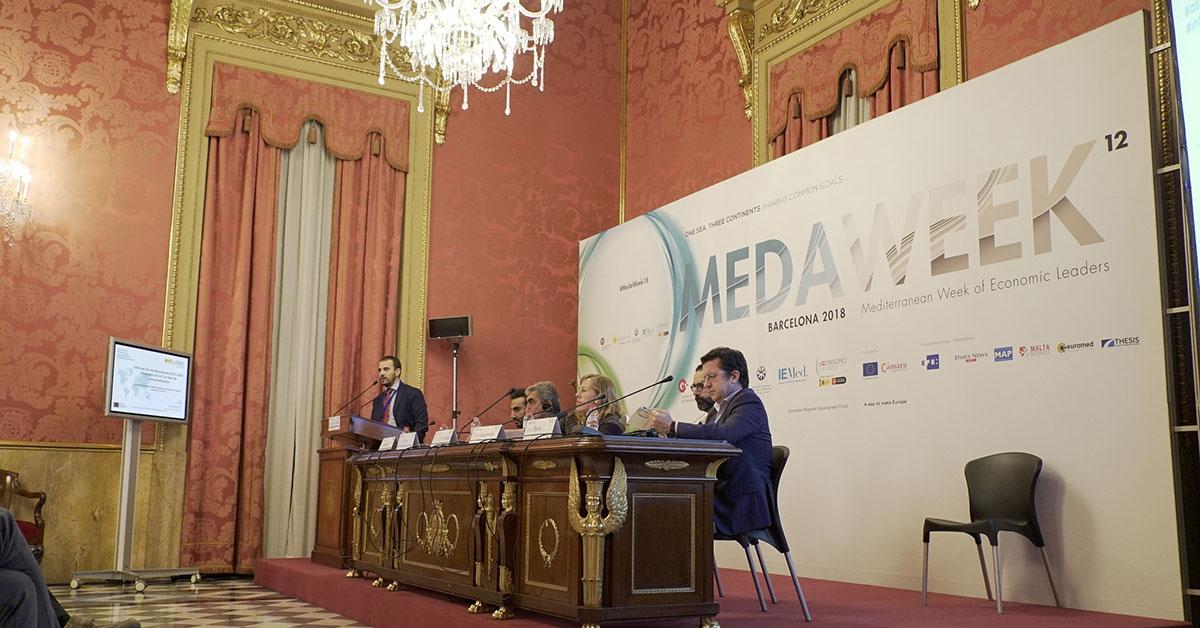 Over the course of three days, MedaWeek Barcelona hosted more than 60 working sessions and over 1,500 attendees, from all corners of the world, including members of the Berytech team, joining forces to foster diversity as a driver for regional growth and integration.
Over the course of three days, MedaWeek Barcelona hosted more than 60 working sessions and over 1,500 attendees, from all corners of the world, including members of the Berytech team, joining forces to foster diversity as a driver for regional growth and integration.
Attendees included entrepreneurs and representatives of the private sector, business support organizations such as chambers of commerce and promotion agencies, political authorities, and international coverage from a number of local and foreign media agencies. The attendees discussed trending topics including the importance for key players to understand and embrace their common goals as a region and explore how to develop them in synergies. Also, they explored how innovation has been and could be impacting the Mediterranean’s development considering the great social, political and economic shifts it is facing that are resulting in commercial regional uncertainty.
Lebanon Exports Human Capital
Despite its interconnected and dynamic history, the Mediterranean is today a highly fragmented region. It suffers from one of the sharpest GDP divides per capita in the world, as well as uneven trade models.
Lebanon is ranked number 15 in human capital as per the global competitive index. The country generates a very high caliber of engineers and scientists only to send them abroad. This major brain drain is due to the country’s incapacity to create jobs for its talent.
This is how Ramy Boujawdeh, Deputy GM of Berytech, initiated his intervention, in which his main focus was on how Lebanon has accelerated its ecosystem and how the innovation landscape has grown. He emphasized the real impact needed in growing the GDP of the country and in retaining talent.
After recapping the timeline of the growth of the Lebanese entrepreneurial ecosystem, Boujawdeh explained Berytech’s approach to having innovation and entrepreneurship strive in Lebanon: “We believe heavily in collaboration. We believe that for entrepreneurship and innovation to grow from a country of 5 million people on this side of the Mediterranean, we need to build collaboration, cooperation, and work with the world. Otherwise, no technology startup will be able to scale if its solution is only focused on the Lebanese market, the population and the purchasing power are too small.”
Boujawdeh continued to explain how early on Berytech had worked extensively with startups to focus on regional and global scaling. For that Berytech has connected with multiple regional and international players. Since 2006, Berytech has joined the European Business Network based in Brussels connecting Berytech to about 250 innovation networks around Europe and the world. Berytech also joined the International Innovation Business Association based in the USA and it is also part of the Anima Investment Network. Berytech has worked extensively to open innovation in agriculture, food, water, renewable energy and AI. Berytech is also part of The Next Society, a platform that connects Mediterranean countries to create bridges and collaborations between the islands of innovations in the sector.
Accelerating Innovation in the Mediterranean
In his intervention, Boujawdeh emphasized that in order to accelerate innovation in the Mediterranean a triple helix approach should be adopted between academia, the private sector, the industry, and the public sector.
“There is major potential available in universities sitting on shelves in publications that are never commercialized. If we could share those innovations in a commercial way we can accomplish a lot. Technology transfer mechanisms are crucial for us to move forward. Access to funding, especially grants and early stage are essential to get those innovative youth excited to move forward in their entrepreneurial journey.
When we look at the Northern side of the Med we find mechanisms set by the governments to help startups remain somehow sustained economically and financially. While in the Southern and Eastern part of the Med there are no mechanisms to allow those innovators to live through the death valley between the idea and the commercialization of their idea, so that’s a major component that we as a community we need to work on.
We need to create the opportunity of learning innovation and entrepreneurship in universities to accelerate that pipeline of innovators. We want those young people who are in universities now to create their next job, to be the owners of their next job, and to create jobs for others.”
Boujawdeh wrapped his intervention by re-emphasizing the need to increase collaboration between industry and academia, between industries among each other and between industries across the Mediterranean, pushing more challenges down the academic sector.



